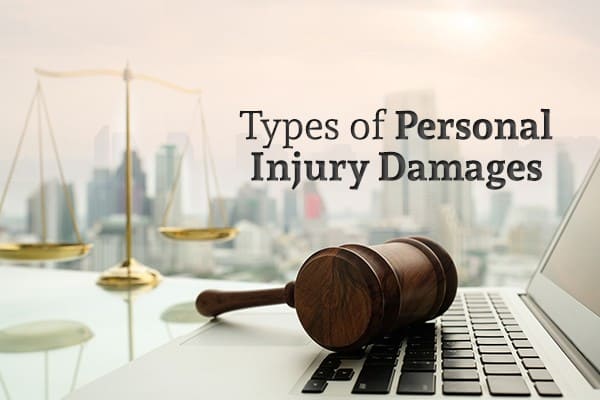
If you have suffered injuries due to another person’s negligence, you will likely begin to wonder whether you will ever be able to get back to a normal life. Depending on the circumstances of the injury, you may have a viable personal injury claim against the responsible party.
In order to recover personal injury damages, you will need to prove these damages by providing evidence and testimony on exactly how the injury has affected every aspect of your daily life. Read on to learn more about the types of legal damages available in a personal injury case and what you will need to do to seek recovery of these damages.
Compensatory Damages
The main type of monetary damages that plaintiffs seek in personal injury cases is compensatory damages. These damages are designed to reimburse the plaintiff for the wide range of financial, physical, and emotional losses he or she has accumulated as a direct result of the injury.
Compensatory damages may include:
-
Lost wages;
-
Loss of earning power;
-
Lost benefits;
-
Medical expenses;
-
Property damage;
-
Loss of enjoyment of life; and
-
Pain and suffering
With the exception of pain and suffering and loss of enjoyment of life damages, most of these can be fairly easily quantified or estimated. For example, you can provide pay stubs and calendar entries to show the amount of time you spent out of work after your injury, or request an itemized list of billed medical expenses from your health insurance company or treatment provider.
If the cause of your injury – such as an auto accident – led to any damage to your property, these costs can also be quantified and recovered, even if your insurance company has already paid some of these costs. Your insurance company may place a lien on a portion of your compensatory damages to reimburse them for the amount spent settling your claim; in other cases, they can seek out repayment directly from the defendant in a process known as subrogation.
A plaintiff’s spouse may be able to bring a separate claim for damages under a category known as “loss of consortium” damages. These damages are designed to repay your spouse for any loss of love, affection, or companionship that he or she has experienced as a result of your injury. For example, if your injury has left you unable to do things that you and your spouse once enjoyed doing together (like hiking, biking, or traveling), loss of consortium damages may be awarded.
Punitive Damages
Punitive damages diverge from compensatory damages in that they are designed solely to punish the defendant’s wrongdoing and discourage them and others from repeating the defendant’s mistake. While compensatory damages must be tied in some way to the debt accumulated by the plaintiff as a result of the defendant’s actions, punitive damages are not so limited and can be set to any amount that the court deems appropriate.
Because one of the crucial elements that must be proven in a personal injury claim is the existence of “actual damages,” an award of compensatory damages is a prerequisite for an award of punitive damages. That is, if the plaintiff cannot prove that his or her injuries or damage were a result of the defendant’s recklessness or willful neglect, the defendant cannot be made to pay punitive damages.
Caps for Punitive Damages
Many states place a cap on the dollar amount of punitive damages that may be awarded in a personal injury claim. These caps often vary significantly, which means that a defendant who performs a negligent, grossly negligent, reckless, or willful action in one state may face a different financial penalty than a defendant who performs the exact same action just across state lines.
Texas
In Texas, there are no caps on non-economic (punitive) damages in personal injury cases. However, there are strict damages limits in medical malpractice cases. Anyone who wins a judgment against a doctor, hospital, and/or another medical provider cannot collect more than $750,000 in non-economic damages.
Virginia
In Virginia, punitive damages are capped at $350,000 in personal injury cases, and total damages for medical malpractice claims are capped at $2 million.
If you or a loved one has been injured and you are interested in learning more about your litigation options, give Branch & Dhillon P.C. a call at (817) 533-3430. Their experienced personal injury attorneys are licensed in two states and can help you get the compensation you deserve for both compensatory and punitive damages.
